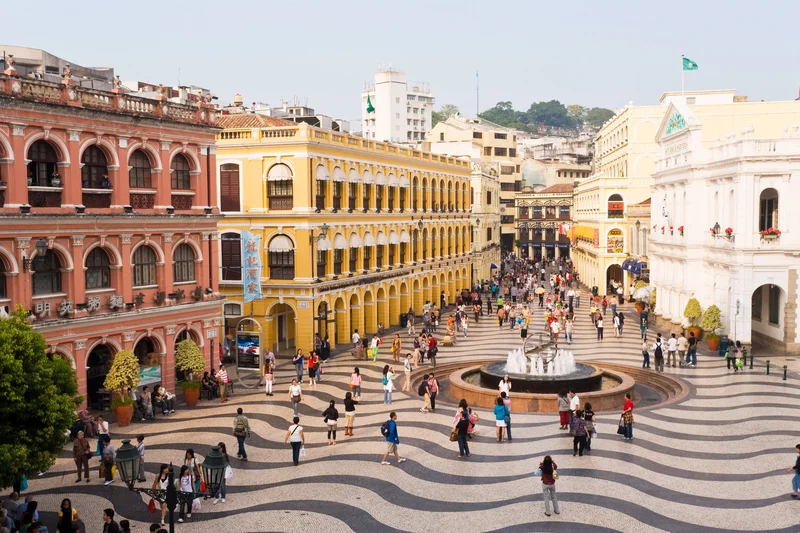So, Macau wants to trade its baccarat tables for operating tables. Give me a break.
The latest PR spin out of the world’s biggest gambling hub is its pivot to medical services, or as one headline put it, how the Gambling hub Macau bets on healthcare tourism. They just opened a "resort hospital" inside a Hollywood-themed casino, of all places. You can get your health screened, your face lifted, and then, what? Go lose your life savings on a game of chance two floors down? The marketing copy practically writes itself.
This whole thing reeks of a desperate rebranding, a clumsy attempt to slap a veneer of sterile respectability on a city built on vice, luck, and desperation. It’s like putting a salad bar in a strip club. The people in charge, likely taking their marching orders straight from Beijing, want you to believe Macau is diversifying, growing up, becoming a mature economy.
Don't buy it. This isn't about diversification. It's about control. It’s about sanding off the city's rough, interesting edges until nothing is left but a smooth, sterile, and perfectly obedient surface.
The Ghost in the Machine
If you want to understand the real soul of Macau—the one they’re frantically trying to bury—you don’t go to a press conference about medical tourism. You listen to someone like Colin Farrell. As one interview revealed, to play a desperate gambler, Colin Farrell lived in a Macau casino for two months. He talked about the "tonality of the gambling world," the constant hum of machines and hope and despair.
He saw a casino floor manager who casually mentioned the house was up $24 million after just four hours of play in a private baccarat room. Twenty-four million. That’s the energy that built this city. It’s a high-stakes, chaotic, and brutally honest ecosystem. It ain't pretty, but it's real.

And that reality is still kicking. Just last week, while the government was probably drafting press releases about cosmetic procedures, Macau’s cops busted a crew for defrauding two casinos out of $2.3 million in chips using forged bank statements. That’s the Macau I recognize. A place of big scores and bigger scams, where the grift is just another part of the game. You can’t just pave over that kind of DNA with a brochure for a wellness spa. It’s a fundamental misunderstanding of what the city is. Or, more accurately, what it was.
The Lights Go Out
While everyone is distracted by Hollywood actors and shiny new hospitals, the real story is happening in the shadows. The story isn't about what Macau is building; it's about what it's tearing down.
Just last week, one of the city's last independent media outlets, All About Macao, was forced to shut down. After 15 years of actual reporting, they posted a final, heartbreaking headline: “Take care and goodbye.” The reason? "Increasing pressure and risks."
Let's translate that from PR-speak. "Pressure and risks" means the government revoked their registration. It means their reporters were getting arrested just for trying to attend a legislative session. It means sponsors and donors got scared off. This is a predictable move. No, predictable doesn't cover it—this is a carbon copy of the Hong Kong playbook, executed with chilling efficiency. As one observer put it, "Macao is taking a page out of Beijing and Hong Kong authorities’ playbook." Offcourse they are.
This isn’t happening in a vacuum. It’s the final act of a long, slow squeeze. Macau passed its anti-sedition law way back in 2009, long before Hong Kong. Now, they’re just tightening the screws. They’re disqualifying "unpatriotic" election candidates and arresting long-serving pro-democracy lawmakers on national security charges. The message is crystal clear: fall in line, or we will crush you. What good is a free press when the only story you're allowed to tell is the one the government hands you?
They’re killing the city’s conscience and calling it "economic diversification." They want a city that looks prosperous on paper but has no pulse, no dissenting voices, no soul. A city that’s all casino and no gamble, all reward and no risk for the people in power. And honestly, the scariest part is how quiet it all is...
The House Always Wins, I Guess
Let's be real. This whole pivot to "healthcare" and "technology" is a smokescreen. Beijing doesn't like the flashy, unpredictable wealth and the underground currents that come with a gambling empire. It's messy. It's hard to control. A sanitized hub for medical procedures, on the other hand? That's clean. That's manageable. It’s the perfect facade for an authoritarian crackdown. They’re not just diversifying the economy; they’re sterilizing the culture. They’re turning a city known for taking chances into a place where no one dares to take one. And that, right there, is the biggest loss of all.
